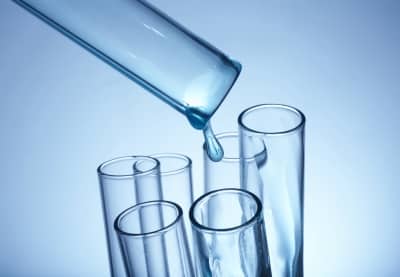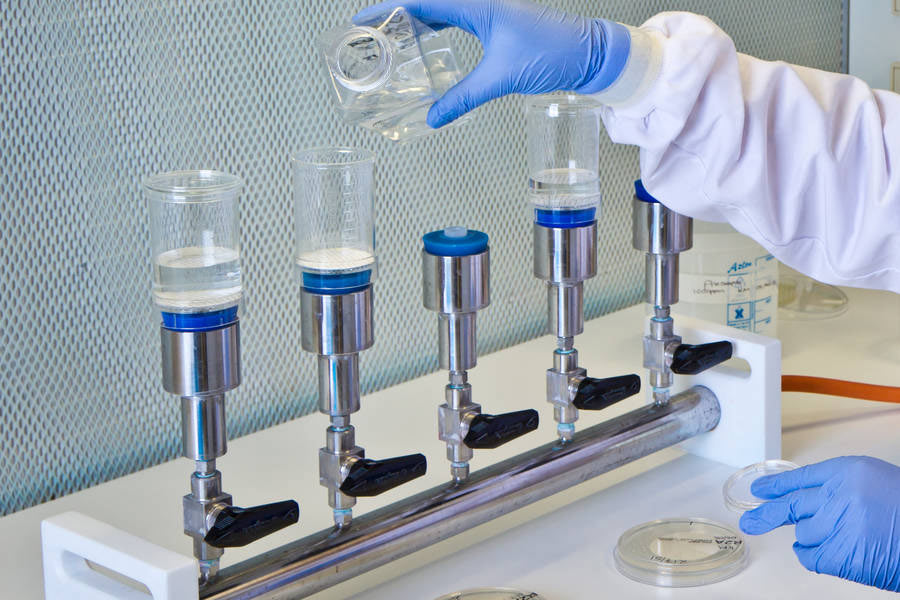Comprehensive Water Testing Services Orlando for Your Home's Demands
Wiki Article
Learn Just How Water Screening Can Discover Impurities and Safeguard Your Family members's Wellness
Understanding the importance of water screening is important for protecting your family's health, as our water supply can nurture undetected threats. By discovering the mechanics of water screening, one can discover the invisible hazards prowling in seemingly beautiful water sources.Relevance of Water Examining
Acknowledging the vital role water plays in sustaining life, the value of water testing can not be overstated. Water is a fundamental source, vital for drinking, food preparation, sanitation, and numerous industrial procedures. Its top quality straight influences public wellness and wellness. As a result, making certain that water is devoid of dangerous materials is critical for maintaining healthy and balanced areas and communities.Water screening works as a proactive action to determine potential threats that may endanger water high quality. Via systematic analysis, it assists identify physical, chemical, and biological specifications that can present threats to human wellness. Normal testing permits the early discovery of concerns, promoting timely interventions to avoid prevalent contamination and linked health issue.
In addition, water screening sustains regulatory conformity, making sure that water service providers meet well established security standards and standards established by governmental authorities. It promotes openness and responsibility, building public trust in the water system. Screening offers useful data that informs water monitoring techniques, allowing sustainable use and preservation of this priceless source.
Basically, water screening is a vital tool that safeguards public health, ensures regulatory adherence, and advertises the sustainable administration of water resources. Its significance in shielding both individuals and communities can not be ignored.
Typical Water Impurities
Amongst the numerous elements that can jeopardize water top quality, typical water contaminants consist of a series of physical, chemical, and organic materials that present significant dangers to human wellness and the setting. Physical pollutants often entail debris or organic products put on hold in water, which can affect clearness and taste. Chemical pollutants incorporate a large selection of compounds, including pesticides, herbicides, steels like lead and mercury, and industrial chemicals. These chemicals can penetrate water materials via farming overflow, industrial discharges, or leaching from pipelines and tank.Organic impurities, largely bacteria, infections, and protozoa, emerge from human and animal waste entering water supply. Pathogens such as E. coli, Giardia, and Cryptosporidium are notorious for causing intestinal ailments and can be specifically dangerous to young kids, the elderly, and those with endangered immune systems. Nitrates and nitrites, typically originating from fertilizers, posture an additional health and wellness danger, particularly to babies, potentially causing problems like methemoglobinemia or "blue child disorder."
Furthermore, emerging contaminants, consisting of pharmaceuticals and personal treatment products, have actually increased issues because of their perseverance and unknown long-term results. Understanding these impurities is crucial for applying efficient water therapy methods and guaranteeing secure drinking water.
Just How Water Screening Works
Recognizing the spectrum of impurities in water emphasizes the value of efficient screening methods to protect public wellness. Water testing is a systematic procedure developed to recognize and quantify numerous pollutants that can pose risks to human health and wellness.As soon as samples are gathered, they undergo lab evaluation making use of numerous techniques. Chemical testing typically includes spectrometry or chromatography, both of which can determine and determine certain chemical substances. For microbiological screening, approaches such as membrane layer purification or enzyme substratum examinations are made use of to detect pathogenic microorganisms. Additionally, physical qualities like turbidity, shade, and ph are evaluated to offer insight into the total top quality of the water.
The specific techniques utilized in water testing depend on the details impurities of concern and the water's intended usage. By constantly using these rigorous testing protocols, scientists and public health and wellness officials can guarantee the security and top quality of water, thereby shielding neighborhoods from prospective health hazards.
Choosing the Right Examination
The initial step is analyzing the water source-- be it community, well, or surface area water-- as each has distinct risks. Local water could call for testing for disinfectant byproducts, while well water may require testing for nitrates, microorganisms, and heavy metals.Following, think about ecological variables and current occasions. Neighboring agricultural activities might necessitate screening for chemicals and herbicides, whereas industrial zones can call for look for chemical contaminants. Furthermore, any changes in water taste, appearance, or odor must trigger particular testing for common impurities like lead, chlorine, or organic pathogens.
Professional water screening services offer extensive packages that target a vast array of potential impurities. These packages often align with criteria established by the Epa (EPA) or neighborhood health and wellness departments. For a more customized strategy, talking to a water top quality expert can supply understandings right into which certain examinations are needed based on regional worries and specific health and wellness demands, ensuring the protection of your household's wellness.

Maintaining Water Safety

Along with screening, proper maintenance of water systems plays an essential role. This includes servicing and examining pipes systems, tank, and septic tanks to stop leakages or backflow that could present contaminants - Water Testing Services Near Me. Using water filtering systems created to resolve specific local issues can further safeguard against contaminations, providing an additional layer of protection
Public understanding and education and learning are similarly crucial in keeping water security. Communities should be educated about prospective dangers related to local Water Testing Service water resources and the needed steps to mitigate them. Urging public involvement in water security initiatives fosters a cumulative obligation that enhances total efficiency.
Eventually, a detailed method that integrates regular testing, system maintenance, and neighborhood participation is essential in protecting water top quality. By doing so, households can be assured of tidy and safe water, shielding their wellness and well-being.

Final Thought
Normal water screening is important for identifying pollutants such as bacteria, hefty metals, and chemicals that posture health and wellness dangers. By examining water samples, undetected dangers can be identified, making sure the provision of risk-free alcohol consumption water.Understanding the importance of water screening is crucial for safeguarding your household's health and wellness, as our water supply can harbor undetected dangers.Water testing offers as an aggressive action to identify prospective dangers that may endanger water high quality.Additionally, water testing sustains regulative compliance, guaranteeing that water providers fulfill recognized safety criteria and standards set by governmental authorities. Municipal water could call for screening for disinfectant byproducts, while well water might need screening for nitrates, germs, and hefty steels.
Regular water screening is an important part in preserving the quality of water resources, enabling prompt interventions before impurities reach harmful levels.
Report this wiki page